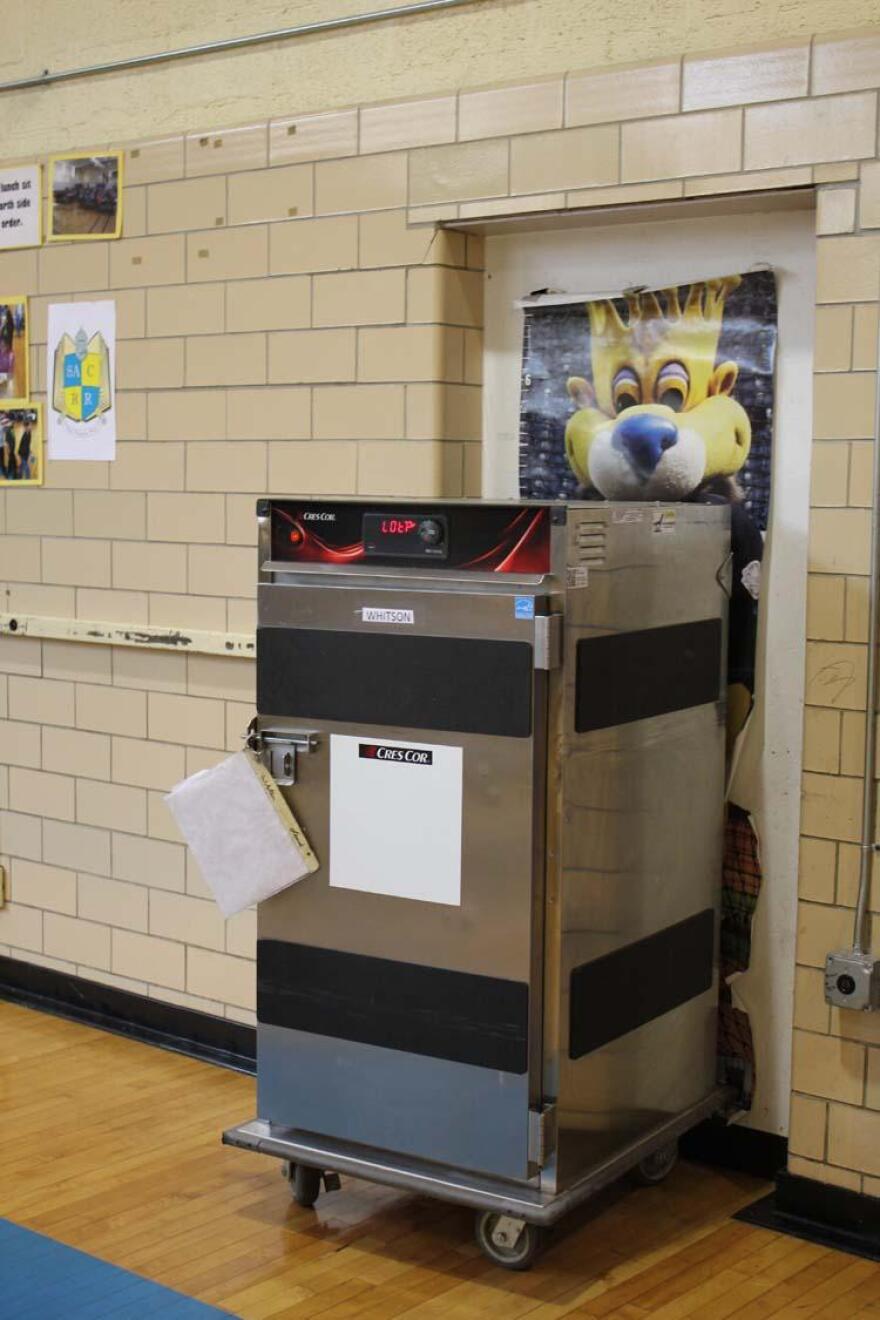Most school districts have moved to comply with stricter nutrition standards since the U.S. Department of Agriculture imposed them almost four years ago.
But many still lack kitchen equipment necessary to make the healthier school breakfasts and lunches appealing.
The U.S. House and Senate are considering competing versions of a bill to reauthorize the nutrition standards. As written, the law includes even tougher standards for the 2017-18 school year, with high schools expected to cut sodium in their lunches by an additional 24 percent.
“They really are lofty targets, and the food industry is going to have to do some new product development before we could meet those targets with processed foods or manufactured foods,” says Cheryl Johnson, director of child nutrition for the Kansas State Department of Education. “But we can start working toward meeting those with some of the scratch cooking.”
Not fully equipped
Scratch cooking, though, is not a reality for many school districts in Kansas and other states, as found in a survey by the Pew Charitable Trusts in 2012 — the year the new standards went into effect.
Nationwide, 88 percent of school nutrition officials who responded said their districts needed more knives, refrigerators and other equipment in order to serve their students fresh produce and made-from-scratch meals. The numbers were slightly better in Kansas, where 72 percent of those who responded said they needed more equipment.
Jessica Donze Black, a child nutrition expert and researcher for Pew, says the organization decided to study the topic after the federal government made $100 million in stimulus grants for school kitchen upgrades available during the recession of the late 2000s. The nation’s schools sent in $600 million worth of applications.
In the absence of equipment for making their own meals from scratch, schools rely on large manufacturers to provide them pre-made. There’s a limited selection of processed foods within the new standards, Black says, which makes students less likely to eat them.
“Where we often see the impact of updated kitchen equipment isn’t so much on technically serving healthy food, but rather the variety of food that they can serve, their ability to serve it in a way that is most appealing to students,” Black says. “So perhaps if it has the best color and the best temperature and it’s cooked in a relatively short amount of time.”
According to the state Department of Education, the number of Kansas students eating school-made lunch has dipped since the standards were introduced — after years of steady increases.

Topeka as a test case
Nicole Jahnke, director child nutrition services for Topeka USD 501, would like her district to serve more made-from-scratch meals.
But it's a district dotted with older schools, and more than half of them don't even have their own kitchens. Their food is prepared at a central kitchen, trucked to various locations and placed on electric warming trays for hours.

"The food may start out really yummy and crispy, but after it sits in the hot cart for a couple hours, it's definitely losing its quality," Jahnke says.
Desmond Smith, a freshman at Topeka High School, says some of the meals he had at the two Topeka middle schools he attended were served cold or “squishy.”
“(In) high school, I don’t even eat lunch,” he says. “I just go home.”
Matthew Genrich is a fourth-grader at Whitson Elementary School. His school has no kitchen, but the principal is optimistic it will soon get the equipment to at least do hot food preparation. Matthew, who usually brings lunch from home, says that would be a good step.
“It would always be really warm since they would make it from here and it wouldn’t be shipped from any school,” he says.
Other Topeka schools already have the equipment and are putting it to use.
Patricia Adolphson, kitchen manager at Eisenhower Middle School, raves about her new convection oven and the school’s salad bar.
Adolphson says she considers the lunchroom an extension of the classroom where students can try new foods, like exotic fruits and vegetables and even more mundane things like apple crisp.
Although some Kansas schools like Eisenhower have been updated since Pew’s survey, Johnson says about half still lack some critical cooking gear.
Both versions of the reauthorization bill in Congress include more money for kitchen upgrades for schools where at least half the students qualify for free or reduced-price lunches.
The American Dairy Association and the NFL’s Fuel Up to Play 60 initiative are teaming to provide new grants open to all schools.

Someday that grant money could translate into made-from-scratch meals for Whitson Elementary fourth-grader La'Mya Taylor and her classmates.
"I like school lunch," she says, "because if you don't have any food to bring from home to eat for lunch — because you have to eat it for dinner and stuff like that — they provide school lunch and they make sure that you eat a meal every day."
Andy Marso is a reporter for KHI News Service in Topeka, a partner in the Heartland Health Monitor team. You can reach him on Twitter @andymarso.



